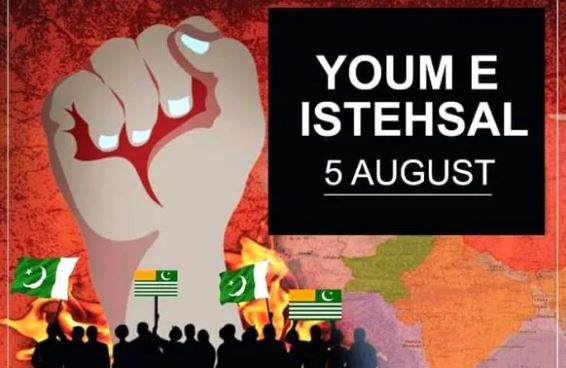Youm-e-Istehsal: Kashmir’s Black Day and the Call for Justice
In the annals of modern history, few conflicts have been as persistent and complex as the Kashmir dispute. One of the most poignant markers of this ongoing struggle is “Youm-e-Istehsal,” or the “Day of Exploitation,” observed annually on August 5th. This day symbolizes a significant and somber moment in the Kashmir conflict, marking the anniversary of the revocation of Jammu and Kashmir’s special status in 2019. The day is observed with a mix of protest, reflection, and calls for international attention.
The Significance of August 5th
On August 5, 2019, the Indian government, led by the Bharatiya Janata Party (BJP), abrogated Article 370 of the Indian Constitution. This article had granted Jammu and Kashmir special autonomy, allowing it to have its own constitution and make decisions regarding internal matters independently of the central government. The revocation of Article 370 was a dramatic shift in the political landscape of the region, with significant implications for its future.
The Indian government’s move was justified by them as an effort to integrate Jammu and Kashmir more fully into the Indian Union and to promote development in the region. However, for many Kashmiris and their supporters, this act was seen as an erosion of their autonomy and an affront to their aspirations for self-determination. It also led to the reorganization of the state into two separate Union Territories: Jammu & Kashmir, and Ladakh.
The Observance of Youm-e-Istehsal
Youm-e-Istehsal is marked by protests, memorials, and calls for international attention. It serves as a day of solidarity among Kashmiris and their supporters globally, reminding the world of the ongoing issues in the region. Demonstrations often feature speeches, marches, and symbolic acts that highlight the grievances of the Kashmiri people and demand the restoration of their special status.
The day is also an opportunity for reflection on the impact of the Indian government’s actions on the lives of Kashmiris. The revocation has been accompanied by heavy restrictions on movement, communication blackouts, and a significant increase in military presence in the region. These measures have exacerbated the sense of alienation and repression among the local population.

International and Regional Reactions
The international community has had mixed responses to the events surrounding Youm-e-Istehsal. While some countries and human rights organizations have expressed concern over the humanitarian implications of the revocation and the subsequent clampdown, others have been cautious in their responses, often due to diplomatic and strategic considerations.
Regional reactions are also divided. Pakistan, which has historically supported Kashmir’s right to self-determination, strongly condemns the revocation and uses Youm-e-Istehsal to rally international support for the Kashmiri cause. In contrast, India maintains that the move was an internal matter and asserts that it is aimed at improving governance and development in the region.
The Call for Justice and Future Prospects
As Youm-e-Istehsal continues to be observed, the central message remains a call for justice and the recognition of the Kashmiri people’s rights. The anniversary serves as a reminder of the broader struggle for self-determination and autonomy, highlighting the need for a peaceful resolution that respects the aspirations and rights of the Kashmiri people.
The future of Jammu and Kashmir remains uncertain. The region’s complex history and geopolitical significance mean that any resolution will require careful negotiation and a commitment to addressing the deep-seated issues that have fueled the conflict. Youm-e-Istehsal underscores the urgency of finding a path forward that honors the rights and dignity of all those affected by the dispute.
In the end, Youm-e-Istehsal is not just a day of commemoration but also a powerful symbol of resistance and hope for a just resolution to the Kashmir conflict. As the world watches, the call for justice and the pursuit of peace continue to resonate, echoing the enduring spirit of those who seek a better future for Kashmir.
